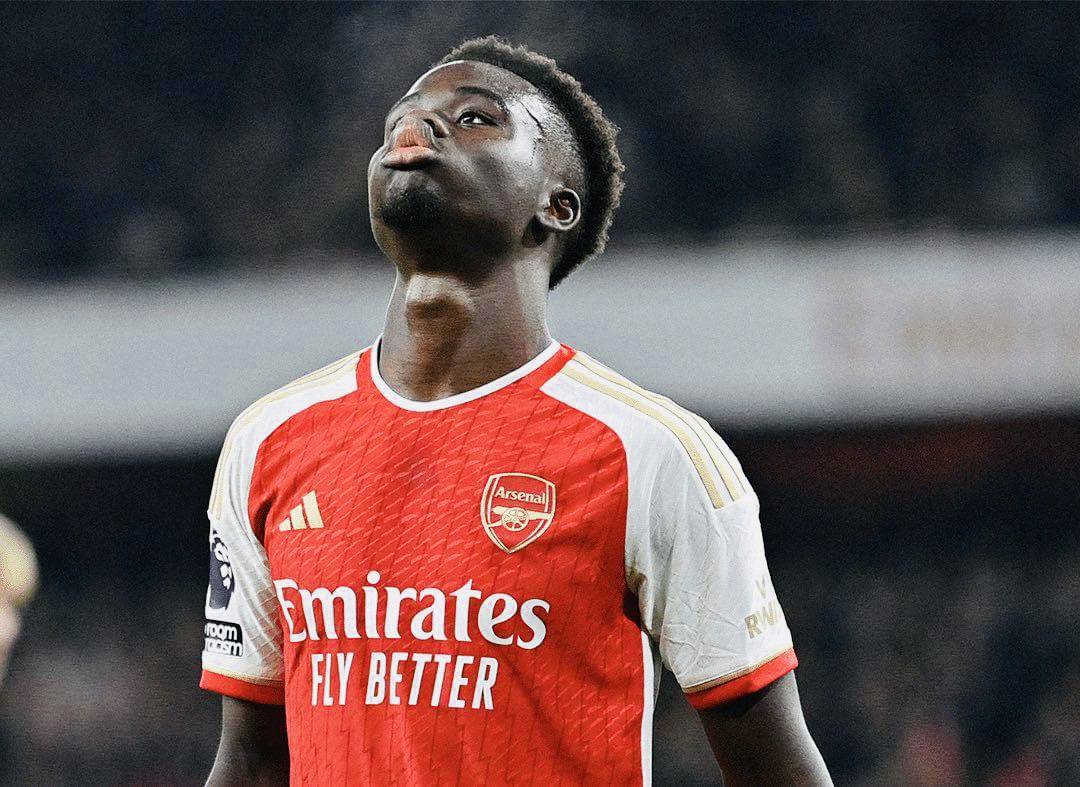Bukayo Saka has voiced his concerns about the decision to issue a red card to his teammate Declan Rice during their latest match, calling for greater consistency in refereeing decisions. According to Saka, the circumstances surrounding the red card were questionable, and he feels that a similar incident earlier in the game was treated quite differently.
Speaking after the match, Saka expressed his frustration, stating, "All we're asking for is some consistency in these calls." He pointed out that, earlier in the match, Joao Pedro had kicked the ball a considerable distance down the pitch after the whistle was blown, but no action was taken against him. In contrast, when Rice made what Saka described as “the slightest touch,” he was immediately shown a red card and sent off the field.
The young English winger seemed particularly dismayed by the apparent lack of uniformity in the referee's decisions. He felt that the incident involving Joao Pedro set a precedent for what would be tolerated in terms of dissent or unsportsmanlike conduct. Saka's contention was that if Pedro's action of booting the ball away wasn’t deemed worthy of a yellow or red card, then Rice’s comparatively minor infraction should not have warranted the severe penalty he received.
From Saka's perspective, the inconsistency is what makes the situation frustrating for players, coaches, and fans alike. “You want to play a fair game,” Saka continued, “but when the rules seem to change depending on the situation or who is involved, it’s hard to accept.” His remarks highlight a common complaint in football—that refereeing decisions can sometimes appear arbitrary, impacting not just the flow of the game but also its outcome.
Saka’s concerns are not without merit, especially in the context of modern football, where the game is scrutinized by multiple cameras, video assistant referees (VAR), and a host of officials. The expectation is that, with so much technology and oversight, the decisions on the pitch should be more accurate and consistent. Yet, incidents like the one involving Rice suggest that there is still a level of subjectivity that can lead to perceived or real injustice.
In addition, Saka's frustration is likely shared by many within the sport. Players train tirelessly to compete at the highest level, and to have the result of a match potentially influenced by what they see as inconsistent refereeing can be disheartening. Moreover, decisions like these can have significant ramifications—not just for the outcome of a single game but for league standings, team morale, and even player reputations.
Saka’s comments bring to the forefront a broader discussion about the standards of officiating in football. He is calling not for leniency but for fairness—where the same rules apply to all players, irrespective of their team or the situation in the match. His call for consistency resonates with the wider football community, which frequently debates the fairness of decisions made during games.
The debate over refereeing decisions is not new, but the introduction of VAR was supposed to reduce such controversies. While VAR has successfully corrected many clear and obvious errors, its use has also introduced a new layer of debate over what constitutes a "clear and obvious" error, further complicating perceptions of fairness and consistency.
By pointing out the disparity between how Pedro and Rice were treated for what he views as similar offenses, Saka has highlighted an ongoing issue in the game. His statement suggests that referees need to be more uniform in their application of the rules, ensuring that all players are judged by the same standards.
In conclusion, Saka’s comments reflect a desire for fairness and clarity in the beautiful game. As football continues to evolve, his call for consistent refereeing serves as a reminder that while the game is passionate and unpredictable, the rules governing it must remain steady and fair for all.




No comments yet
Be the first to share your thoughts!